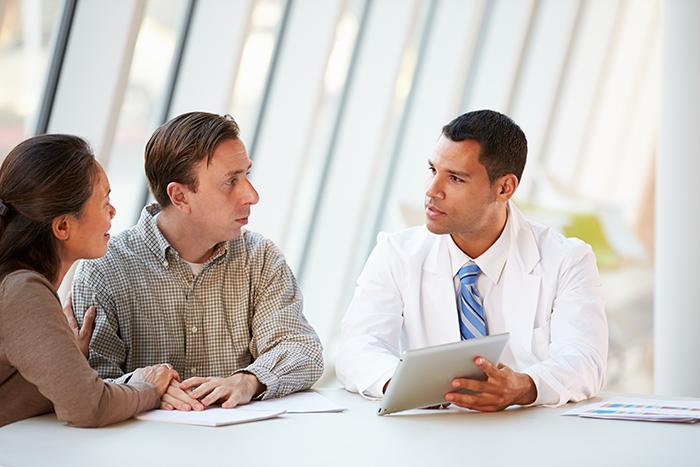February 2021
Feeling Chained by the Invisible Enemy named FATIGUE?
People in the modern world are tired, and that tiredness is often more intense for people living with cancer and other chronic illnesses. Fatigue can range from daytime drowsiness to feeling too exhausted to get out of bed.
Multiple factors contribute to fatigue; the most common causes include:
- poor sleep
- the severity of illness - sometimes called “disease burden”
- chemotherapy
- radiation therapy
- certain medications
- diet
- thyroid dysfunction
The Lymphoma Coalition, a non-profit network of lymphoma patient groups, conducts research to help lymphoma patients. Comprised of 83 member organizations in 52 countries, the Coalition’s vision is equity in lymphoma outcomes across borders. The Lymphoma Coalition’s 2018 survey identified fatigue as the leading physical symptom affecting quality of life.1
According to their 2020 Global Survey, in which 470 CTCL patients participated, patients report fatigue as the second most common symptom, second only to skin changes. Of the 445 patients who answered the fatigue question, 244 (55%) indicated that fatigue has affected them.2
Fatigue is a long-term problem. Given CTCL’s chronic nature, patients in the survey describe fatigue lasting for eight years or more. 160 survey respondents said that they discussed their fatigue with their healthcare provider, and over one third said that the provider took no action.
The Cutaneous Lymphoma Foundation (CL Foundation) defines fatigue as a decreased capacity for activity, often accompanied by feelings of weariness, sleepiness, or irritability. The Foundation’s patient handbook, “A Patient’s Guide to Understanding Cutaneous Lymphoma,” suggests anticipating fatigue and pacing yourself, building rest periods into your day as needed, and adjusting your work schedule wherever possible. Historically, this has been the common advice given to cancer survivors, regardless of diagnosis.
However, according to the American Association for Cancer Research, evidence continues to mount that cancer survivors who engage in exercise experience numerous physical and mental health benefits including increased activity tolerance, improved quality of life, and decreased depression and anxiety.3
In 2010, the American College of Sports Medicine (ACSM) Roundtable concluded that cancer survivors could safely engage in enough exercise training to improve physical fitness and reduce fatigue.4 Their second Roundtable in 2018 concluded that every cancer survivor should “avoid inactivity” and that engaging in moderate-intensity aerobic training three times per week can significantly reduce cancer-related fatigue, both during and after treatment. The ACSM encourages cancer healthcare providers to “Assess, Advise, and Refer” and strives to connect cancer survivors to the most appropriate exercise programming.
Find the programming registry at www.exerciseismedicine.org/movethruca.
During a recent CL Foundation Facebook Live event5, Dr. Farrah Abdulla, Professor of Dermatology and Dermatopathology at City of Hope in California, said that patients with patch disease are not “expected” to have fatigue as a complication. Patients with more advanced disease, however, may more commonly feel fatigued. “It really depends on the stage of the disease and the extent of involvement”.
Dr. Abdulla also discussed how drugs, such as oral bexarotene (Targretin), depress the thyroid, which can cause fatigue. It is important to monitor blood tests, specifically the free thyroxine level so that patients can be “boosted with synthetic thyroid hormone to keep energy levels up.” Dr. Abdulla also noted that coexisting medical conditions may contribute to fatigue.
Susan Thornton, the Cutaneous Lymphoma Foundation Chief Executive Officer and a CTCL patient herself, describes how poor sleep and life stresses, possibly unrelated to CTCL, contribute to fatigue. Susan encourages ongoing discussions with your healthcare provider to determine if fatigue is “disease-related, or lifestyle-related”. Susan describes both an emotional and physical fatigue from long-term treatment.
Unsurprisingly, research data validates Susan Thornton’s opinion on fatigue. The Journal of Psychosomatic Research suggests that up to 45% of ALL American adults are chronically fatigued.6 It’s an interesting thought to consider that you may feel fatigued, completely independent of your CTCL diagnosis.
Dr. Basem William, former Director of the T-Cell Lymphoma Program at Ohio State University, discussed fatigue at another CL Foundation Facebook Live Event7 in late 2019. Dr. William also encourages patients to discuss fatigue with their doctor. He, too, describes mental and emotional fatigue in CTCL patients and emphasizes the need to rule out organic causes of fatigue.
“We are complicated creatures”, says Dr. William, “Our mind affects how our body functions, so exercise certainly reduces stress. Exercise releases a lot of substances inside the brain naturally. It’s the same substance that drugs like morphine release, giving a sense of relief of pain. It gives a sense of pleasure, a relief of tension. This can be obtained naturally and in a healthy way by trying to adhere to a low-intensity exercise program.” He also notes the importance of a healthy diet.
Dr. William believes that his patients face another struggle; the isolation that comes with a rare disease.
He states that “connecting with people that have similar struggles to yours can be very uplifting.”
Dr. William states that, ironically, “Exercise works better if you are tired. Committing to a low-intensity exercise program can have a tremendous, positive impact on quality of life.”
However, recent studies show that low-intensity workouts, although likely to have other benefits, are unlikely to reduce fatigue. Moderate-intensity aerobic training three times per week can significantly reduce cancer-related fatigue, both during and after treatment.
If you participate in a low-intensity exercise program and are still feeling fatigued, talk to your doctor about kicking it up a notch.
Ask your doctor about the Exercise is Medicine program and get your customized prescription for exercise.
Are you starting a workout routine? Do you need a battle hymn? Try the song by the 1970’s Canadian punk rock band, The Diodes, titled “Tired of Waking Up Tired”: https://www.youtube.com/watch?v=9eyBzgnvDF4
Maybe this song will become the anthem of the Cutaneous Lymphoma Foundation and cancer survivors everywhere.
1 Lymphoma Coalition, 2018 Global Patient Survey on Lymphomas & CLL – Cutaneous Lymphoma Subtype Report, Institute of Applied Biosciences at CERTH, The Centre for Research and Technology Hellas (INAB | CERTH), September 2018. https://www.clfoundation.org/sites/default/files/2020-01/Global-Patient-Survey-2018---Subtype-Report---CL.pdf
2 Lymphoma Coalition, 2020 Global Patient Survey on Lymphomas & CLL – Cutaneous Lymphoma Subtype Report, Picker Institute Europe, July 2020. Not yet available to public.
3 Brown JC, Huedo-Medina TB, Pescatello LS, Pescatello SM, Ferrer RA, Johnson BT. Efficacy of exercise interventions in modulating cancer-related fatigue among adult cancer survivors: a meta-analysis. Cancer Epidemiol Biomarkers Prev. 2011 Jan;20(1):123-33. doi: 10.1158/1055-9965.EPI-10-0988. Epub 2010 Nov 4. PMID: 21051654.
4 Campbell KL, Winters-Stone KM, Wiskemann J, May AM, Schwartz AL, Courneya KS, Zucker DS, Matthews CE, Ligibel JA, Gerber LH, Morris GS, Patel AV, Hue TF, Perna FM, Schmitz KH. Exercise Guidelines for Cancer Survivors: Consensus Statement from International Multidisciplinary Roundtable. Med Sci Sports Exerc. 2019 Nov;51(11):2375-2390. doi: 10.1249/MSS.0000000000002116. PMID: 31626055.
5 Cutaneous Lymphoma Foundation, Facebook Live: Open Q&A with Dr. Farah Abdulla, February 2020. https://youtu.be/pp1NKERPZ_M
6 Doerte U. Junghaenel, Christopher Christodoulou, Jin-Shei Lai, Arthur A. Stone, Demographic correlates of fatigue in the US general population: Results from the patient-reported outcomes measurement information system (PROMIS) initiative, Journal of Psychosomatic Research, Volume 71, Issue 3, 2011, Pages 117-123, ISSN 0022-3999, https://doi.org/10.1016/j.jpsychores.2011.04.007. (https://www.sciencedirect.com/science/article/pii/S0022399911001401)
7 Cutaneous Lymphoma Foundation, Facebook Live: Clinical Trials with Dr. Basem William, September 2019. https://youtu.be/K99-pocUh9I


